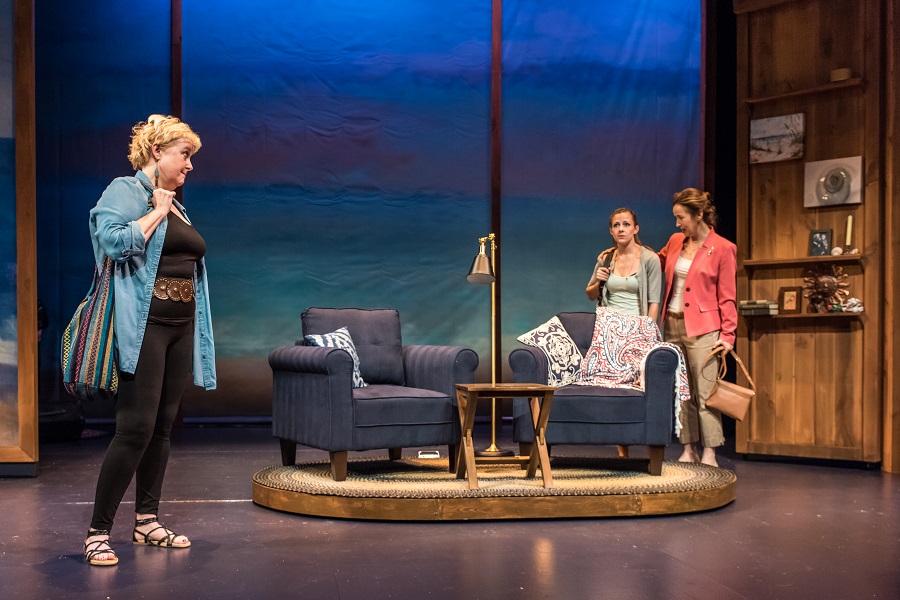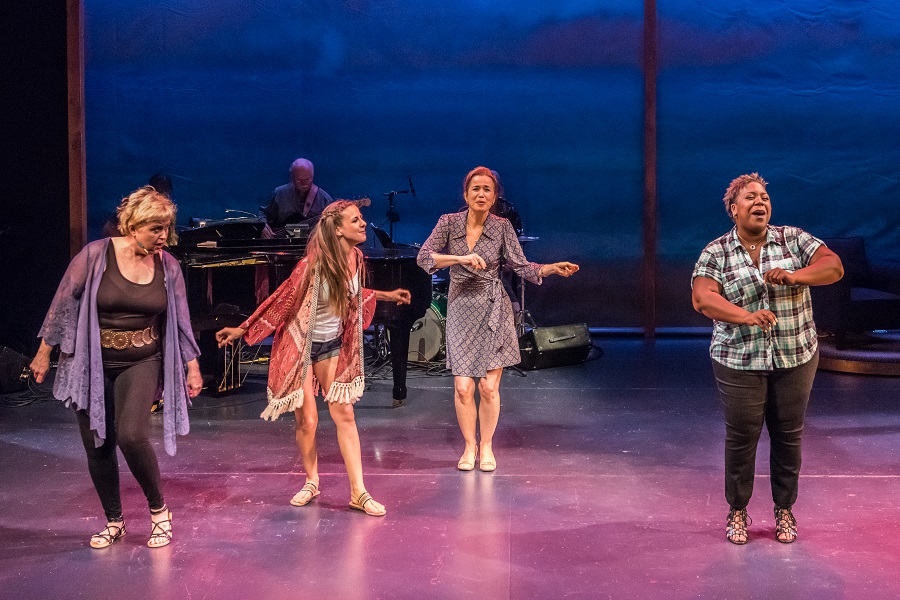WELLFLEET, MASS.: There is something manifestly American about becoming. We become our professions, we become devout, we become lovers, but we rarely are our professions, our devotions, our entanglements. We are a society that values flux.
There is also something American about resisting this fluidity.
Bill Russell, Tony-nominated lyricist/librettist of Side Show and author of the new musical Unexpected Joy, which receives its world premiere at Cape Cod’s Wellfleet Harbor Actors Theater July 21-Aug. 20, grew up in Spearfish, S.D., a stone’s throw north of Deadwood and its mess of history and strife. His paternal grandparents were cattle ranchers just over the border in Wyoming—cowboy country, and yet a place where cows are no longer herded with horses. He muses that his grandparents are “shocked by the fact that I haven’t owned a car in 30 years. They cannot imagine it.” Perhaps herein is the conflict: It is difficult to accept a life that you cannot imagine.
Unexpected Joy follows three generations of female musicians. The grandmother, Joy, is a rocker who came up in the 1960s. Her daughter, Rachel, married to a prominent televangelist, mirrors the conservative culture of the ’80s. Rachel’s daughter, Tamara, assumes the liberal attitudes of more recent decades. Things come to a head at a memorial concert for Rachel’s father, where Joy reveals that she intends to marry Lou, a self-described lesbian terrorist. We have heard this song before: All kin share blood, history, and hopes for the future, as well as an inability to imagine how their kin could see that blood and history and vision of tomorrow differently.
Director Lynne Taylor-Corbett attempts in staging this production to understand why we resent this disparity with the ones we love. She blames time and temperament: “No one can totally understand what it was like to walk in the shoes of a World War II life. We’re products of our time, but we’re also very much our own people. I think part of what’s going on with these three women is that they don’t get each other and what each of them went through.”

The characters aren’t the only ones who experience difficulty. “I’ve written several four-character musicals,” Russell says. “You can’t have all the songs be solos and duets. You’ve got to vary the musical programming.” Composer Janet Hood’s score also ranges in style, from the lows of the blues to the highs of rock, the yearning of gospel to the simple revelations of folk-rock, but in general is closer to popular music than traditional musical theatre.
And like most of the composers he writes with, Hood prefers to have Russell create the lyric first. Sometimes the two will discuss what style the music might be, but not often. “I don’t always write a full lyric—maybe a verse and chorus to start,” Russell explains. Then Hood sets what he’s written, “and I have to match what is there. At that point the song style definitely has a huge effect on the meaning and lyrics.”
For her part, Taylor-Corbett states that the show’s great challenge is that it wavers between past and present. “It’s a bit flow-of-consciousness,” she says. That implies one consciousness, doesn’t it? She agrees, suggesting that there is an underlying connection between the epochs and the people—a greater intelligence that brings them together.
Perhaps that intelligence can carry a tune. “Most musicals are based on source material, but this is not,” Russell says. “So it was challenging to find the dramatic structure, the story, and who the characters are. But I always find my way into a musical through the music.”
The song “I Don’t Wanna Get Married” is proof. It was originally a poem Russell had written about the ambivalence he’d shared with Bruce, who is now his husband, about the ascendance of gay marriage. “We always felt that one of the cool things about being gay was not having to deal with that,” Russell says. “So when we started writing the show, it seemed like a perfect statement for the character of Joy to make. Eventually we came around to the idea that getting married was an important statement, which is where Joy arrives in the show.”
If time divides families, perhaps music unites them.
Tal Zamir is a freelance writer based in Provincetown, Mass.


